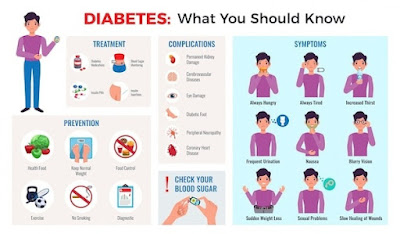Waking up in the middle of the night with a parched mouth can be frustrating and uncomfortable. Dry mouth, or xerostomia, is a condition where your mouth feels unusually dry due to a lack of saliva. While it can happen at any time of day, many people experience it more severely at night. Understanding why it happens and how to manage it is key to improving sleep quality and overall well-being.
Common Causes of Dry Mouth at Night
Mouth Breathing If you sleep with your mouth open, you are more likely to experience dry mouth. This could be due to nasal congestion, sleep apnea, or simply a habit of breathing through your mouth. Air passing over your oral tissues dries out the saliva, making your mouth feel dry.
Medications Many medications list dry mouth as a side effect, especially at night. Antidepressants, antihistamines, decongestants, and blood pressure medications are common culprits. Since saliva production naturally decreases during sleep, the effect of these medications can be more pronounced at night.
Dehydration Not drinking enough water throughout the day can lead to dehydration, which may cause your mouth to feel dry, particularly during sleep. Drinking caffeine or alcohol in the evening can exacerbate this, as both can be dehydrating.
Medical Conditions Certain health issues, such as diabetes, Sjögren’s syndrome, and autoimmune diseases, can lead to chronic dry mouth. Nighttime xerostomia is also common in those who suffer from acid reflux or gastroesophageal reflux disease (GERD), as stomach acid can irritate the throat and reduce saliva flow.
Aging As we age, the body produces less saliva, which can result in a drier mouth at night. Additionally, older adults are more likely to take medications that contribute to this condition.
Consequences of Dry Mouth at Night
Saliva plays a crucial role in maintaining oral health. It helps cleanse the mouth, neutralizes acids, and washes away food particles. When your mouth is dry, you are more prone to developing:
- Cavities: Without enough saliva, your teeth are more susceptible to decay.
- Bad Breath: The bacteria that cause bad breath thrive in a dry environment.
- Gum Disease: A lack of moisture can lead to plaque buildup, which increases the risk of gum disease.
- Difficulty Swallowing: Saliva helps in breaking down food and making it easier to swallow, and without it, eating becomes more challenging.
Remedies and Solutions for Nighttime Dry Mouth
Stay Hydrated Drink plenty of water throughout the day and have a glass of water by your bedside at night. Avoid caffeinated and alcoholic beverages in the evening, as they can increase dehydration.
Use a Humidifier If the air in your bedroom is dry, a humidifier can add moisture to the air, reducing the likelihood of waking up with a dry mouth. This is particularly helpful during the winter months when indoor heating can strip moisture from the air.
Breathe Through Your Nose If you tend to breathe through your mouth while sleeping, try to consciously train yourself to breathe through your nose. Nasal strips or saline sprays can help clear up any congestion that might be contributing to mouth breathing.
Chew Sugar-Free Gum Chewing sugar-free gum before bed can stimulate saliva production. Xylitol-based gum is an excellent option as it can also help protect your teeth.
Rinse with Alcohol-Free Mouthwash Some mouthwashes contain alcohol, which can make dry mouth worse. Instead, opt for an alcohol-free, moisturizing mouthwash specifically designed for dry mouth.
Review Medications with Your Doctor If you suspect your medication is causing dry mouth, speak with your doctor about alternative options. Sometimes adjusting the dosage or timing of your medication can help alleviate the issue.
Use Saliva Substitutes Over-the-counter saliva substitutes are available in the form of gels or sprays. These can help lubricate your mouth at night and provide temporary relief.
Dental Checkups Regular visits to your dentist can help you stay on top of your oral health. If dry mouth is affecting your teeth or gums, your dentist can recommend treatments or solutions to prevent further damage.
When to See a Doctor
If your dry mouth persists despite trying home remedies, it may be time to consult a healthcare professional. Chronic dry mouth could be a sign of an underlying health condition, such as diabetes, GERD, or an autoimmune disorder, that needs attention.
Conclusion
Dry mouth at night is more than just a minor inconvenience—it can affect your oral health and overall well-being. By identifying the cause of your dry mouth and taking steps to manage it, you can enjoy a more comfortable and restful night’s sleep. Simple lifestyle changes, hydration, and over-the-counter remedies can often provide relief, but if the issue persists, don’t hesitate to seek professional advice.





